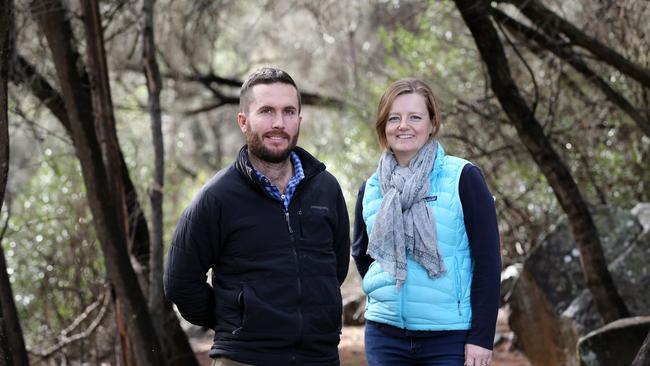Lake Malbena fight heading for Supreme Court in latest appeal
Conservationists fighting a tourism development within the Tasmanian Wilderness World Heritage Area are taking their legal case to the Supreme Court.

News
Don't miss out on the headlines from News. Followed categories will be added to My News.
CONSERVATIONISTS fighting a tourism development within the Tasmanian Wilderness World Heritage Area are taking their legal case to the Supreme Court.
Daniel Hackett has a lease over Halls Island in Lake Malbena in the Central Highlands granted after his plans for a helicopter-serviced standing camp passed through the government’s controversial Expressions of Interest process.
His development approval was knocked back by the Central Highlands Council, but that decision was overturned by the Resource Management and Planning Appeal Tribunal in December.
And in November, the Federal Court found the Reserve Activity Assessment process, which is used by the Parks and Wildlife Service to assess tourism proposals, had “no apparent statutory basis”.
READ MORE:
- Federal Court orders fresh assessment for Lake Malbena tourism development
- Appeals Tribunal reveals decision on Lake Malbena standing camp proposal
- Environmentalists signal fight against Lake Malbena project will continue
- Decision in Wilderness Society’s fight against Fed Govt’s approval of Lake Malbena
Tasmanian National Parks Association president Nicholas Sawyer said the Supreme Court appeal also challenged the use of the RAA process as part of the development approval.
“Our appeal to the Supreme Court is challenging the tribunal’s ruling that it could rely on the Tasmania Parks and Wildlife Service’s reserve activity assessment to determine whether the Lake Malbena proposal is in accordance with the Tasmanian Wilderness World Heritage Area Management Plan 2016,” he said.
“Our appeal will also argue that the tribunal should not have relied on the reserve activity assessment decision because that decision was also defective.
He said the case would be important in helping to establish what standards would be applied to developments proposed within wilderness areas.
“The Tasmanian National Parks Association is pursuing this matter because it has major implications for the many other intrusive tourism developments currently being considered for Tasmania’s national parks under the state government’s secretive Expressions of Interest process,” he said.
“The policy of locating tourism developments around the edge of Tasmania’s Wilderness World Heritage Area while preserving the wild character of the more remote areas has worked well for decades – it is not clear why the state government and elements of the tourism industry are so keen to overturn this sensible and effective approach.”
The state government is running an open-ended expressions of interest process for developers to submit proposals for tourism projects on public land.
There have been 32 projects made public after passing through the process, and an unknown number of other are being considered in secret.
Terms and conditions of the lease agreements made with developers are not make public.
The appeal is expected to be heard by the Supreme Court later this year.


